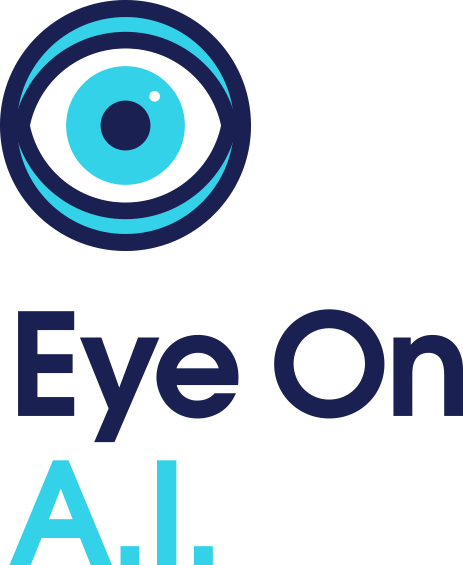Week Ending 02.17.19
RESEARCH WATCH: 02.17.19
Over the past week, 223 new papers were published in "Computer Science".
The paper discussed most in the news over the past week was "Spectre is here to stay: An analysis of side-channels and speculative execution" by Ross Mcilroy et al (Feb 2019), which was referenced 4 times, including in the article SECURITY Unless modern design changes significantly, side-channel attack vectors aren't going anywhere in TechSpot.
Leading researcher Kyunghyun Cho (New York University) came out with "BERT has a Mouth, and It Must Speak: BERT as a Markov Random Field Language Model".
Over the past week, 47 new papers were published in "Computer Science - Artificial Intelligence".
The paper discussed most in the news over the past week was by a team at University of Alberta: "The Hanabi Challenge: A New Frontier for AI Research" by Nolan Bard et al (Feb 2019), which was referenced 26 times, including in the article AI gets carded, China and US agree on robot wars, Amazon claims Rekognition is just fine in The Register. The paper author, Nolan Bard (DeepMind research scientist), was quoted saying "We can essentially think of the first part as being a ‘search over conventions,’ which is technically hard but at least in principle can be written down".
Leading researcher Pieter Abbeel (University of California, Berkeley) published "Preferences Implicit in the State of the World".
Over the past week, 124 new papers were published in "Computer Science - Computer Vision and Pattern Recognition".
The paper discussed most in the news over the past week was "Hotels-50K: A Global Hotel Recognition Dataset" by Abby Stylianou et al (Jan 2019), which was referenced 6 times, including in the article How to help AI find human trafficking victims in The Next Web. The paper author, Abby Stylianou (PhD student at George Washington University), was quoted saying "We then artificially erase similar looking regions from a number of the images that our network is trained on, using people shaped masks from the Microsoft Common Objects in Context dataset. This encourages the network to learn to produce similar codes for images from the same hotel even if there is a large blanked out shape in the image."
Leading researcher Dhruv Batra (Virginia Tech) came out with "EvalAI: Towards Better Evaluation Systems for AI Agents".
Over the past week, 18 new papers were published in "Computer Science - Computers and Society".
The paper discussed most in the news over the past week was "Problem Formulation and Fairness" by Samir Passi et al (Jan 2019), which was referenced 2 times, including in the article Trust but verify: Machine learning’s magic masks hidden frailties in SiliconANGLE. The paper author, Samir Passi, was quoted saying "If the system completely matches gut feeling it’s as useless as if it delivers the opposite of gut feeling."
Over the past week, 12 new papers were published in "Computer Science - Human-Computer Interaction".
The paper discussed most in the news over the past week was "Enhanced Robot Speech Recognition Using Biomimetic Binaural Sound Source Localization" by Jorge et al (Feb 2019), which was referenced 1 time, including in the article Researchers improve robots’ speech recognition by modeling human auditory processing in Venturebeat.
This week was active for "Computer Science - Learning", with 198 new papers.
The paper discussed most in the news over the past week was by a team at University of Alberta: "The Hanabi Challenge: A New Frontier for AI Research" by Nolan Bard et al (Feb 2019), which was referenced 26 times, including in the article AI gets carded, China and US agree on robot wars, Amazon claims Rekognition is just fine in The Register. The paper author, Nolan Bard (DeepMind research scientist), was quoted saying "We can essentially think of the first part as being a ‘search over conventions,’ which is technically hard but at least in principle can be written down".
Leading researcher Kyunghyun Cho (New York University) came out with "BERT has a Mouth, and It Must Speak: BERT as a Markov Random Field Language Model".
Over the past week, three new papers were published in "Computer Science - Multiagent Systems".
The paper discussed most in the news over the past week was "Understanding The Impact of Partner Choice on Cooperation and Social Norms by means of Multi-agent Reinforcement Learning" by Nicolas Anastassacos et al (Feb 2019), which was referenced 2 times, including in the article AI helps researchers model the impact of social norms in Venturebeat.
Over the past week, 18 new papers were published in "Computer Science - Neural and Evolutionary Computing".
The paper discussed most in the news over the past week was "Enhanced Robot Speech Recognition Using Biomimetic Binaural Sound Source Localization" by Jorge et al (Feb 2019), which was referenced 1 time, including in the article Researchers improve robots’ speech recognition by modeling human auditory processing in Venturebeat.
Leading researcher Trevor Darrell (UC Berkeley) published "Learning to Control Self-Assembling Morphologies: A Study of Generalization via Modularity".
This week was active for "Computer Science - Robotics", with 47 new papers.
The paper discussed most in the news over the past week was "Autonomous visual inspection of large-scale infrastructures using aerial robots" by Christoforos Kanellakis et al (Jan 2019), which was referenced 12 times, including in the article More evidence that drones could and should play major role in infrastructure inspections in Construction Dive. The paper author, George Nikolakopoulos (Researchers), was quoted saying "We are currently working on improving the robustness of the technology to be directly applicable in multiple use cases, while we are also close to [finalizing] the creation of our spinoff in the field of autonomous aerial inspection".
Leading researcher Ruslan Salakhutdinov (Carnegie Mellon University) came out with "Embodied Multimodal Multitask Learning".

